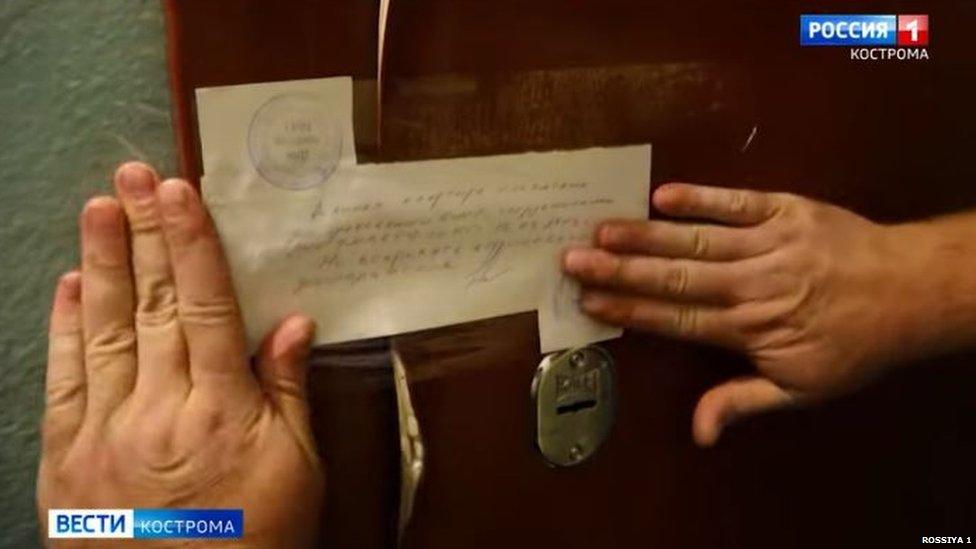Russian police convicted of busting own drug den
- Published

Russian media described the duo's actions as a "performance"
A court in the Russian city of KostromaĀ has convicted two policemen for busting a drug den they created themselves to chalk up a crime-fighting success, it's reported.
Investigators say YuryĀ Titov, head of a police station, and senior detective Ivan Mantrov in a flat, according to local news website Kostroma Today.
Better known in Russia by its street name crocodile, desomorphine is a synthetic drug similar to opium that was originally developed to treat severe pain.
It is widely abused in Russia, and is often called the "flesh-eating drug" because of the frequent damage to addicts' bodies caused by impurities.
You may also be interested in:
The two policemen talked their victims - known drug users already under investigation in another case - into setting up the drug den by promising to help them win bail.
The officers even , which they are thought to have sourced in the police's evidence stores.
Titov and Mantrov then arrested the drug users involved and closed the den. They even launched a case against one of their "suspects", which has since been closed.
Kostroma police's internal affairs unit got wind of the scheme - thought to be aimed at improving the two officers' clearance rate - and handed the evidence to the Investigations Committee, Russia's equivalent of the FBI.
'Frequent practice'
The two officers were charged with exceeding their lawful authority and encouraging drug use.
But it turns out they won't have to go to jail. In Tuesday's court judgment, they only got suspended sentences - six years for Titov and three-and-a-half years for Mantrov.
It is thought to be a frequent practice among Russian narcotics police to plant drugs on unsuspecting citizens in order to meet tough performance targets.
In one recent high-profile case, Russian investigative journalist Ivan Golunov was arrested in Moscow last summer when police claimed to have found drugs on him.
Golunov, who was researching a local corruption story at the time, was later freed and the case dropped after a public outcry and allegations that the substances were planted.
In January, five policemen were charged with falsifying evidence in the case.
The planting of drugs to improve police statistics is thought to be a widespread practice
Reporting by Adam Robinson
Next story: Russian para-athlete's delivery job prompts criticism
Use #NewsfromElsewhere to stay up-to-date with our reports via .